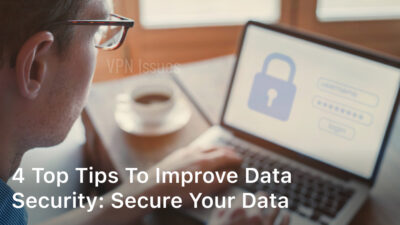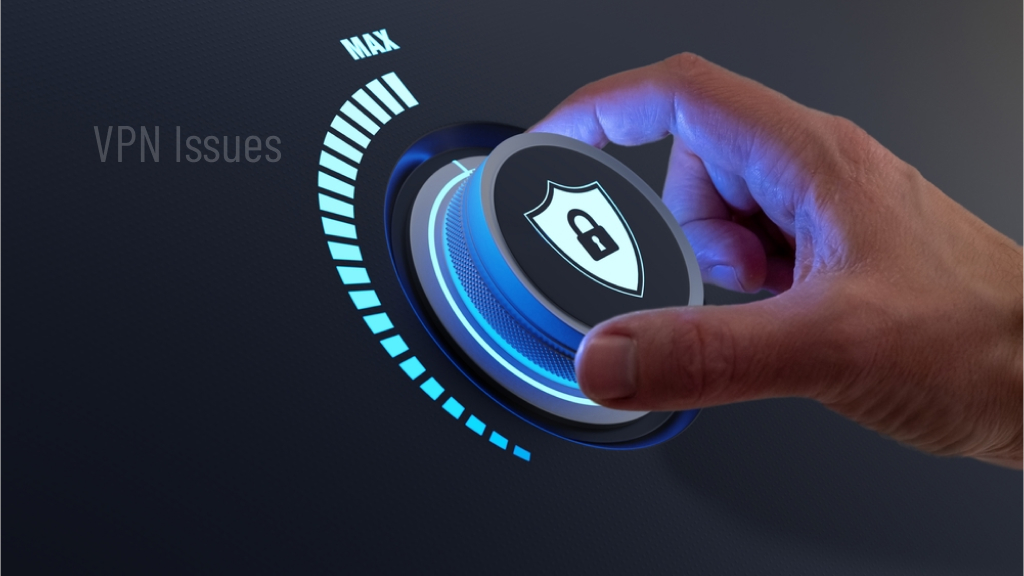4 Top Tips to Improve Data Security: Secure Your Data

Data security is crucial in today’s digitized world. Protecting digital assets, maintaining data privacy, and preventing cyber threats are vital practices for any individual or organization. In this article, we will provide you with top tips to enhance your data security, improve data protection, and ensure cybersecurity and data privacy. Follow these expert-recommended practices to elevate your data security.

Understand the Risks: Identifying Potential Threats
Prior to implementing any data security measures, it is crucial to understand the potential risks and threats. As cyber attacks become more sophisticated, having proper data security measures in place is essential for safeguarding valuable digital assets.
Best Practices for Secure Information Handling
By following best practices for secure information handling, you can reduce the risk of data breaches and ensure data privacy. Data security measures, such as encryption and firewalls, can help prevent unauthorized access to your network and protect against potential threats.
The Importance of Establishing Data Security Practices
Establishing data security practices is crucial in protecting your organization’s sensitive data. This includes requiring strong passwords, implementing multi-factor authentication, and educating employees on data security best practices.
- Require strong passwords: Encourage employees to create strong passwords and regularly update them. Utilize tools that enforce password requirements, such as minimum length and complexity.
- Implement multi-factor authentication: Multi-factor authentication adds an extra layer of protection by requiring an additional step to verify identification, such as a code or fingerprint scan.
- Educate employees on data security best practices: Providing regular training and education on data security practices can help establish a culture of data privacy within your organization.
By understanding the risks and implementing proper data security practices, you can enhance the protection of your valuable data and safeguard against potential threats.
Implement Strong Passwords and Authentication Methods
Weak passwords are a common way for attackers to gain unauthorized access to your data. Creating strong, unique passwords for each account is essential for data security enhancement. Avoid using easily guessable passwords such as your name, birth date, or common words. Instead, use a combination of upper and lowercase letters, numbers, and special characters for added security.
In addition to strong passwords, multi-factor authentication is another effective method for protecting your data. This involves requiring a second form of identification, such as a fingerprint or verification code, in addition to your password. By implementing these data security solutions, you can significantly reduce the risk of unauthorized access to your sensitive information.
Secure Your Network: Encryption and Firewalls
Securing your network is essential to ensure the protection of your data. Encryption and firewalls can significantly enhance data security by preventing unauthorized access to your network and ensuring secure data transmission.
Encryption
Encryption is the process of transforming data into a cryptographic code that can only be accessed by authorized users. This data security solution is crucial for protecting sensitive information, such as financial records or personal data. Utilizing encryption methods such as SSL or TLS can ensure the secure transmission of data over a network.
Firewalls
A firewall is a network security system that monitors and controls incoming and outgoing network traffic. Firewalls establish a barrier between your network and the internet, preventing unauthorized access to your network and protecting against potential threats. Implementing firewalls and ensuring they are up-to-date can enhance data security and prevent data breaches.
By implementing encryption and firewalls, you can significantly enhance your data security solutions and ensure the protection of your valuable digital assets from potential threats.
Educate and Train Your Employees on Data Security
One of the most effective ways to prevent data breaches is by educating your employees about data security practices. It is crucial to create a culture of data privacy within your organization to ensure the protection of valuable data.
Implement Training Programs
Implementing training programs is an excellent way to raise awareness among employees about data security practices. The training should focus on providing practical knowledge and skills that employees can use to protect sensitive information.
It’s essential to make data security training mandatory for all employees. This includes regular refreshers to ensure that employees remain up to date with changing data security practices and the latest threats to data privacy.
Promote a Culture of Data Privacy
Encourage your employees to follow best practices for data security and to be vigilant in identifying potential threats. Promote a culture of data privacy where employees are encouraged to report suspicious activity and take proactive steps to protect sensitive information.
Make sure that your employees understand the importance of data privacy and are aware of the consequences of data breaches. By promoting a culture of data privacy, you can create a more secure and trustworthy organization.
Implementing employee training programs and promoting data privacy will help ensure that your organization remains secure and protected from potential data breaches.
Conclusion
As we conclude our discussion, it is evident that data security is crucial in today’s digital landscape. With the increasing threats of data breaches, it is essential to protect valuable digital assets. By implementing the top tips discussed in this article and adopting best practices, you can enhance data protection and cybersecurity for your business. Remember to educate and train your employees on data security practices to promote a culture of data privacy within your organization.
Stay vigilant and proactive in securing your network and data transmission. Implement strong passwords, multi-factor authentication methods, encryption, and firewalls to prevent data breaches and unauthorized access.
Thank you for reading this article on top tips to improve data security. We hope that the information provided will help you safeguard your valuable digital assets and ensure data privacy for a secure digital future.
FAQ
Why is data security important?
Data security is essential because it protects sensitive information from unauthorized access, ensuring the confidentiality, integrity, and availability of data. It helps prevent breaches, identity theft, financial loss, and reputational damage.
How can I improve data security?
To enhance data security, you can implement strong passwords, multi-factor authentication, encryption, and firewalls. It is also crucial to educate employees about data security practices and establish data protection measures.
What are some data security measures I should consider?
Some important data security measures include regularly updating software, using antivirus programs, conducting regular backups, limiting access privileges, and monitoring network activity to detect and respond to potential threats.
How can I ensure data privacy?
You can ensure data privacy by implementing strict access controls, encrypting sensitive information, regularly monitoring and auditing data handling practices, and complying with relevant data protection regulations, such as GDPR.
What are the best practices for secure information handling?
Best practices for secure information handling include training employees on data security, using secure file sharing methods, disposing of sensitive information securely, and regularly updating and patching software to address any vulnerabilities.
How can I protect my network from unauthorized access?
To secure your network, you can utilize encryption protocols, implement firewalls to monitor and control incoming and outgoing network traffic, regularly update and patch network devices, and restrict access to your network through strong access controls.
What should I do in case of a data breach?
In case of a data breach, it is important to act promptly. You should notify affected individuals, assess the extent of the breach, fix the vulnerability, implement additional security measures, and cooperate with relevant authorities to mitigate the impact and prevent future breaches.
monperatoto
monperatoto
monperatoto
situs togel
situs gacor
situs toto
toto togel
situs slot resmi
slot gacor
slot resmi
togel online
situs toto
togel